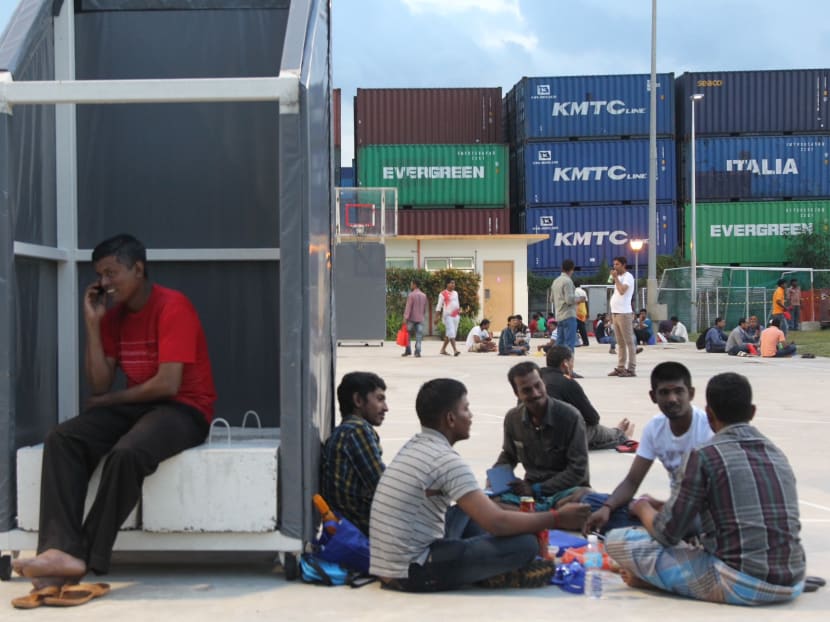Migrant workers awaiting compensation face high rate of mental distress
SINGAPORE — Migrant workers waiting for salary or injury compensation from employers are more susceptible to suffer mental and emotional distress, a study by researchers from Singapore Management University (SMU) revealed.
SINGAPORE — Migrant workers waiting for salary or injury compensation from employers are more susceptible to suffer mental and emotional distress, a study by researchers from Singapore Management University (SMU) revealed.
The study, which surveyed 605 migrant workers mostly from Bangladesh and India, found that 62 per cent of this group were plagued by mental health issues, as compared with the 13 per cent for regular Work Permit holders.
In addition, threats made by employers to deport migrant workers back to their home country can cause migrant workers to live under a cloud of fear and uncertainty, and those with outstanding claims who were being threatened had a 50 per cent chance of suffering from a serious mental illness, the study found.
Such threats of repatriation can take various forms — be it in the form of verbal threats, seeing other workers sent home or forcible attempts to get them on the plane — said the study’s co-author and SMU School of Social Sciences’ Assistant Professor of Sociology Nicholas Harrigan, during a media conference on the study results today (Nov 4).
This comes on top of the psychological distress migrant workers face when saddled with high agent fee debts. About 80 per cent of the total sample surveyed reportedly forked out between S$1,000 to S$10,000 in agent fees.
Among those who are waiting for salary or injury compensation, housing issues can amplify this distress. Ninety per cent of injury and claim workers said they no longer lived with their employers, for fear of their physical safety or being sent back home.
In one case, for instance, a migrant worker sold his business in India for S$10,000 before coming to Singapore. After sustaining a serious head injury when a large metal block struck his head, his supervisor threatened to deduct S$50 per day in pay if he did not return to work. Fearing that his employer would send “gangsters” after him, he ran away from his lodgings. A year since the accident, he is still in considerable pain and his injury claim has not been resolved.
The survey — conducted over two weeks in 2013 — was facilitated by about 50 volunteers. Psychological distress was measured using the Kessler 6 scale, a widely-used measurement. However, Prof Harrigan stressed that more research needs to be done to generalise it to the larger migrant work population.
HOME executive director Jolovan Wham, who was also at the conference, said the findings validate what the organisation has seen on the ground. “They are stuck in this kind of position when they are put in an unequal position where they don’t have enough bargaining power,” he said.
The researchers, who have presented their findings to the Ministry of Manpower, called for more protection for this vulnerable group, such as by giving Work Permit holders guaranteed access to the 30-day Short-Term Visit Pass when their passes are terminated, and more regulation of agent fees.
In response, the MOM said although foreign workers with injury and salary claims account for about 1 per cent of the foreign workforce in Singapore, the ministry takes them seriously. It also cited laws that here provide a degree of protection for workers.
For example, under the Employment of Foreign Manpower Act, employers of injured workers and workers with salary claims are required to provide for their upkeep and maintenance while they await the settlement of their cases. Laws also prohibit workers from being repatriated before their claims are settled, and exit papers are issued by the MOM. “Workers are informed of this right in their native language before they come to Singapore; and again after they arrive,” a MOM spokesperson said.
The ministry added that it is unable to regulate the fees and practices employed by employment agencies outside of Singapore. However, it brings such practices to the attention of the respective embassies or high commissions.







